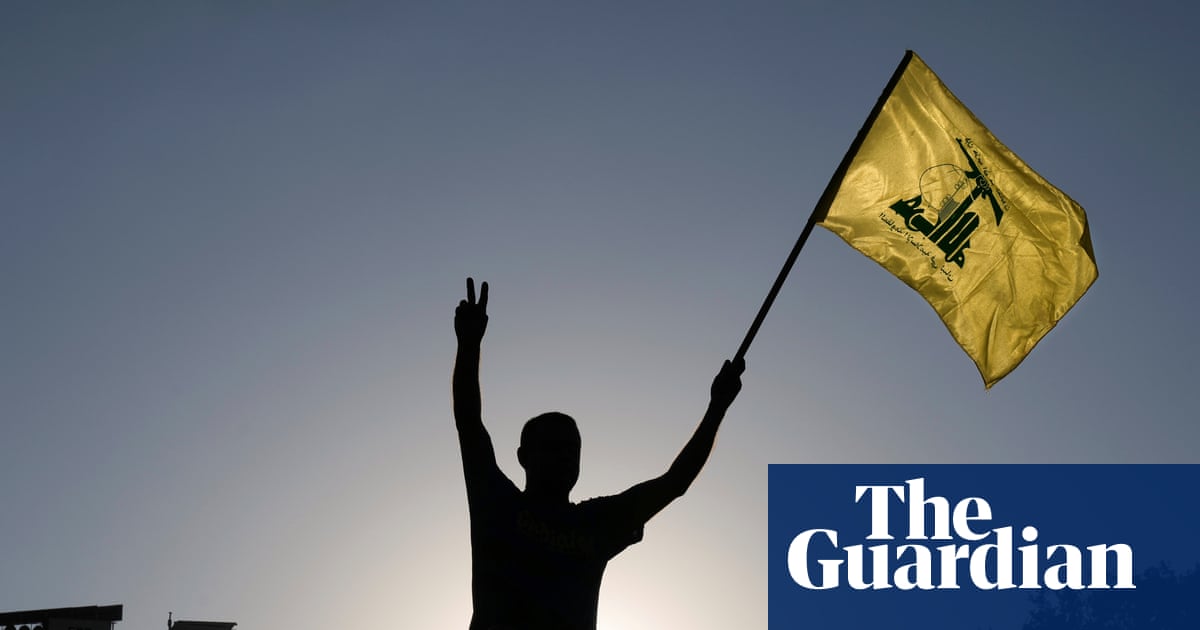
Under mounting US pressure, Lebanon’s government is being forced into a dangerous choice. Does it want to fight a war with Israel or does it want to fight a war at home, with Hezbollah?
In recent weeks, the US has been pushing for the Lebanese government to disarm Hezbollah. The government had already been moving in that direction, but not at the pace the US wanted. Lebanese media began to fill with warnings from unnamed sources that if Hezbollah’s arms were not confiscated soon, a second war with Israel could be on the horizon.
On Tuesday, the Lebanese government acquiesced and announced the Lebanese army would draw up a plan to place arms exclusively within the hands of the state by year’s end. Hezbollah and its political ally Amal announced the next day that they would “treat the decision as if it did not exist” and accused the government of serving US diktats.
US pressure for faster disarmament has laid the seeds for a scenario the Lebanese government has taken pains to avoid: a confrontation with Hezbollah. If cornered, the group could resort to force to defend its arsenal.
Lebanon’s current government was born after the latest Hezbollah-Israel war, with the US as its midwife. A battered Hezbollah could no longer maintain its side of a stalemate that had left Lebanon without a president for two years, and Joseph Aoun, the former army chief, was elected amid heavy US pressure.
The election of Aoun, who included in his mandate restoring the state’s monopoly on violence, was an extraordinary sign of how much Lebanon, and the region, had changed in the past year.
Hezbollah had dominated Lebanon for two decades. What had started as a resistance group described as a “state within a state” had transformed into a party controlling the state, setting much of Lebanon’s domestic and foreign policy.
It was only after a devastating war with Israel, which saw virtually all of its top leadership killed, thousands of fighters dead or wounded and a large portion of its weapons destroyed, that Hezbollah’s grip on the country was loosened. The toppling of the Syrian president, Bashar al-Assad, in December was another blow to the group, which had used Syria as its main supply route from Iran.
The new Lebanese government, however, was careful not to gloat. It took pains not to publish videos of soldiers confiscating Hezbollah weapons caches in south Lebanon. Too aggressive an approach to Hezbollah could provoke a confrontation and alienate the group’s base of mostly Shia Muslims.
First and foremost was to engage in state-building so that former members of Hezbollah and its popular base felt included in Lebanon’s national project, rather than under siege.
Officials were aware that the same conditions which gave rise to Hezbollah in the 1980s are still present today. Similar to 45 years ago, Israel occupies parts of southern Lebanon and the country’s Shia population, which bore the brunt of Lebanon’s war, are impoverished and do not feel represented by the state.
The US views the gradual pace that the state has set as stalling, however.
On the Lebanese side, officials have privately complained that the Americans seem unconcerned with building a strong Lebanese state. Instead, the US wanted immediate results on disarmament, putting the new government’s state-building project at risk.
“This process is very dangerous the way it is unfolding. It will actually consolidate and push potentially even wider sectors of the Shia portion of Lebanese society behind Amal and Hezbollah rather than to national consolidation,” said Joseph Daher, the author of Hezbollah: the Political Economy of the Party of God.
Near-daily Israeli airstrikes on Lebanon, in violation of the November ceasefire, have also undermined the Lebanese government’s claims that only the state can protect sovereignty.
The day after Lebanon announced it would draft a plan to disarm Hezbollah, an 11-year-old child was killed by an Israeli airstrike in Lebanon.
The Lebanese army has not responded to any of the thousands of Israeli airstrikes on the country since November – nor does anyone expect it to. The under-equipped, under-staffed army can do little in the face of an Israeli military equipped with US fighter jets, which drop the latest US munitions by the thousand.
There is little appetite among the international community to help the Lebanese army become a proper fighting force. Requests by army leadership to install low-tech watchtowers on its border with Israel have been rejected.
Without the means to do so, asking the Lebanese army to enforce the disarmament of Hezbollah is a tall order. “How can you ask the LAF to do to Hezbollah what Israel couldn’t do to Hamas in a smaller space, with warplanes?” said a senior diplomat in Beirut.
Nonetheless, international pressure to disarm Hezbollah is likely to increase, not abate. Opinion among international powers on the question of the Lebanese state’s monopoly on arms was uniform.
“The US, Saudi and EU are in agreement on this point: the question is no longer if Hezbollah should be disarmed, but how to do it,” the diplomat said.








